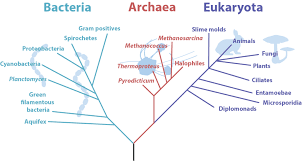Relevance: mains: G.S paper III: Science and Technology
Why in news?
- Scientists at the National Centre for Microbial Resource — National Centre for Cell Science (NCMR-NCCS) in Pune have reported a new archaeon (a kind of microorganism), which they discovered in Sambhar Salt Lake in Rajasthan.
- The discovery was described in the International Journal of Systematic and Evolutionary Microbiology.
Why it matters?
- Archaea (singular archaeon) are a primitive group of microorganisms that thrive in extreme habitats such as hot springs, cold deserts and hypersaline lakes.
- These slow-growing organisms are also present in the human gut, and have a potential relationship with human health.
- They are known for producing antimicrobial molecules, and for anti-oxidant activity with applications in eco-friendly waste-water treatment.
- Archaea are extremely difficult to culture due to challenges in providing natural conditions in a laboratory setting.
Search and discovery:
- Sambhar Lake has been poorly studied for microbial ecology studies. With a salt production of 0.2 million tonnes per annum, it is also a hypersaline ecosystem which provides an opportunity for microbial ecologists to understand organisms that thrive in such concentrations.
- Once the new organism was found, it took researchers one year to complete the study because archaea grow so slow.
- Based on a mandatory genome analysis, researchers found that the organism has potential gene clusters that helps maintain the metabolism of the archaea to survive in extreme harsh conditions.
- This particular organism also harbours specific pathways for DNA replication, recombination and repair.
- The new archaeon has been named Natrialba swarupiae, after Dr Renu Swarup, secretary, Department of Biotechnology, for her initiative in supporting microbial diversity studies in the country.


